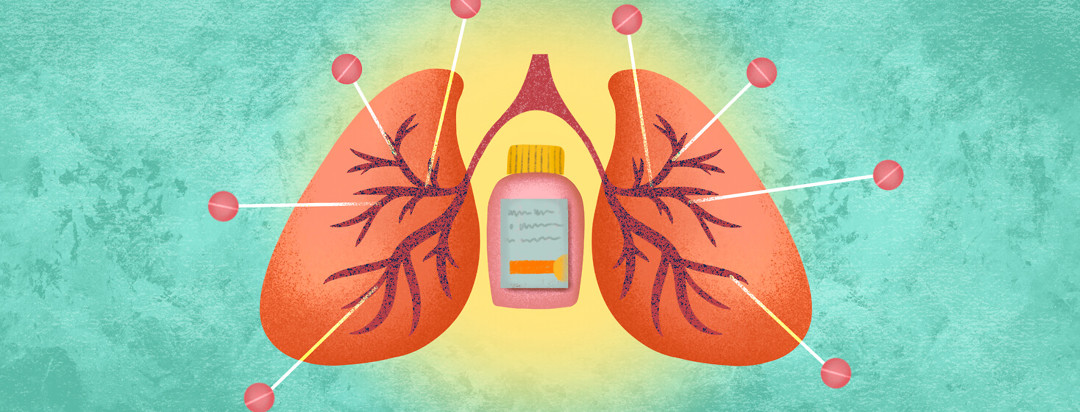Ibuprofen Use In Cystic Fibrosis
Inflammation in cystic fibrosis (CF) is one of the ways that lung damage happens. Since death from CF is mostly due to loss of lung function, long-term treatment focuses on ways to preserve lung function. In order to fight inflammation and slow lung damage from cystic fibrosis, doctors have studied the effects of ibuprofen and other nonsteroidal anti-inflammatory drugs like aspirin (NSAIDs).1,2
Studies of high-dose ibuprofen treatment for cystic fibrosis
Age significance
In one early study in 1995, researchers found that people with CF who took high doses of ibuprofen 2 times a day had a slower rate of decline in lung function, fewer hospital admissions, and better chest X-ray scores.4
The study took place over 4 years and found that the effects of ibuprofen were most helpful to the people in the youngest group, those who were 5 to 13 years old. As a result, the Cystic Fibrosis Foundation recommends the use of ibuprofen for people with CF who are older than 6 and have mild lung disease, in order to slow disease progression.3,4
Disease severity
In a 2018 study, researchers looked at data comparing children with cystic fibrosis who were given high-dose ibuprofen and children who were not treated with ibuprofen. They found that children given high-dose ibuprofen had slower rates of lung function decline and improved survival rates more than 16 years.
This connection was strongest in children who had shown some evidence of loss of lung function but not a significant loss. This supports the recommendation that high-dose ibuprofen treatment may be most effective in children who have only mild lung disease when they begin treatment.2
Lung bacteria
Another study from 2018 looked at the effect ibuprofen may have on bacteria that commonly develops in the lungs of people with cystic fibrosis. The study found that ibuprofen was able to slow the growth of several types of bacteria. The researchers also tested a dose of ibuprofen that would be inhaled through an aerosol instead of taken by mouth as a pill. When taken in this way, the ibuprofen can go directly to the lungs. This may also avoid some of the digestive tract risks that come with high-dose ibuprofen taken by mouth.5
These studies suggest that ibuprofen may work by both decreasing inflammation and fighting bacteria in the lungs.
It can be tricky to find the correct dose of ibuprofen. Doctors should monitor the dose to make sure it is right for each person. While there are some concerns about long-term risks with the use of ibuprofen, including bleeding in the digestive tract and kidney failure, these have been rare.1
Ibuprofen and chronic pain in cystic fibrosis
While high-dose ibuprofen is recommended mostly for children to help prevent lung damage, adults with CF may be advised to take ibuprofen or other NSAIDs for other reasons. Cystic fibrosis-related arthritis (CFA) is a chronic pain disorder that is commonly treated with ibuprofen. While rare, CFA can be extremely painful and disruptive. Ibuprofen is prescribed to reduce the inflammation thought to be causing arthritis. More research is needed into how and why CFA develops and the best way to treat it.6

Join the conversation